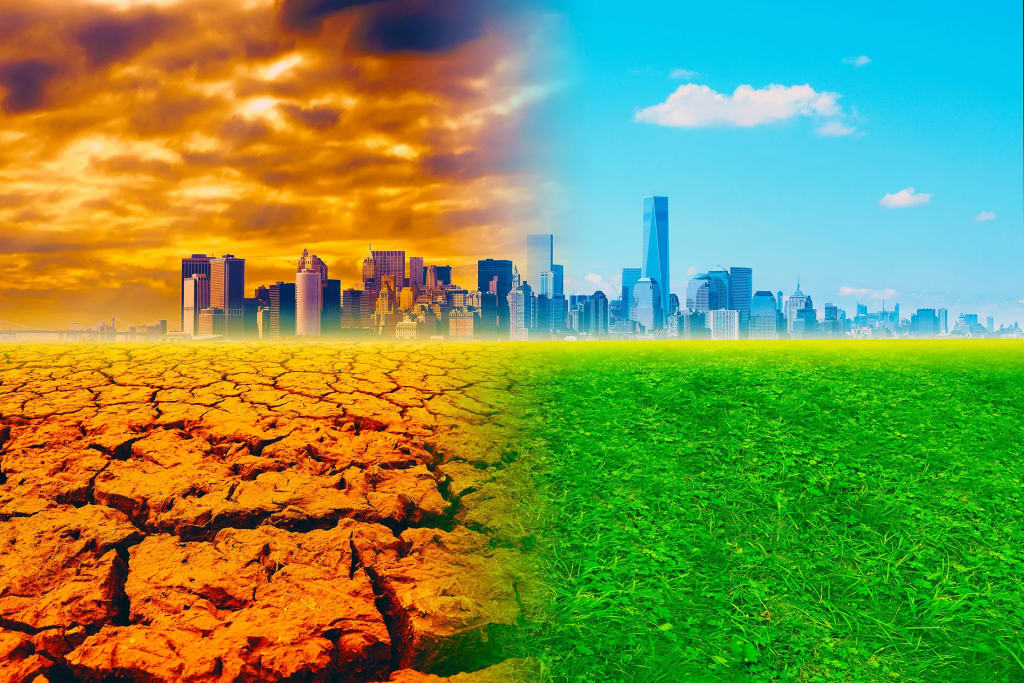Rising Greenhouse Gas Emissions: China, US, and India Under Scrutiny
Surging Greenhouse Gas Emissions: China, US, and India in the Spotlight

Recent data analysis has shed light on alarming trends in global greenhouse gas emissions since the signing of the Paris climate agreement in 2015. China and India have witnessed significant spikes in electricity generation, while the United States has seen a surge in oil and gas production, contributing prominently to these emissions surges. This revelation underscores the challenges faced in achieving emission reduction goals.
Moreover, despite the commitment of over 100 countries to reduce methane emissions, there has been an unsettling increase in methane levels, a greenhouse gas that possesses an 80-fold potency compared to carbon dioxide. This concerning trend persists despite international efforts to curb its release, as highlighted in the findings published by the Climate Trace project.
Compounding this issue is the evident failure of nations and corporations to accurately report their emissions, a fundamental requirement stipulated by the Paris agreement. The lack of accurate reporting raises serious questions about accountability and transparency in emissions monitoring, hindering global efforts to combat climate change effectively.
The urgency of this matter has been underscored by the ongoing meeting in Dubai, where representatives from over 190 nations have convened to address strategies for aligning the world with the Paris agreement's objective of limiting global temperature increases to 1.5 degrees Celsius above pre-industrial levels. However, the meeting has revealed significant shortcomings, with many countries failing to provide crucial updates on their progress towards emission reduction targets.
At the heart of the Cop28 UN climate summit in Dubai lies the critical "global stocktake" process—an evaluation of advancements made in meeting the necessary cuts in emissions to stay within the 1.5-degree Celsius limit. The apparent lapses in updates from several nations highlight the urgent need for enhanced cooperation and accountability in achieving the ambitious climate goals set forth in the Paris agreement.
The failure to accurately report emissions and the evident surge in key contributors like China, India, and the US reflect systemic challenges. These challenges not only impede progress but also cast doubt on the effectiveness of existing mechanisms to curb greenhouse gas emissions.
Within the framework of the Cop28 UN climate summit, the criticality of the "global stocktake" process cannot be overstated. This comprehensive assessment serves as a compass to gauge the world's trajectory in meeting emission reduction targets. However, the lack of updated information from numerous nations poses a considerable obstacle in accurately assessing the collective progress towards the 1.5-degree Celsius goal.
The urgency to address these shortcomings has never been more pressing. The environmental consequences of unchecked emissions are already manifesting in extreme weather events, rising sea levels, and disruptions to ecosystems. The imperative to swiftly realign strategies, strengthen commitments, and enforce robust monitoring mechanisms is evident.
To catalyze meaningful change, a concerted global effort is essential. This entails fostering greater transparency in reporting emissions, ensuring accountability for commitments made under the Paris agreement, and promoting innovation in sustainable technologies across industries.
Furthermore, recognizing the interdependence between nations and industries in combating climate change is crucial. Collaborative endeavors in research, development, and implementation of clean energy solutions can pave the way for a more sustainable future.
Ultimately, the ongoing climate summit in Dubai must serve as a catalyst for renewed determination and tangible action. It should galvanize a collective resolve to bridge the gap between intentions and actions, forging a path towards a more sustainable, resilient, and equitable world for present and future generations.
The challenges are immense, but with unwavering commitment and collaborative efforts, there remains hope in steering the trajectory towards a climate-resilient future. The time for meaningful action is now.






Comments
There are no comments for this story
Be the first to respond and start the conversation.